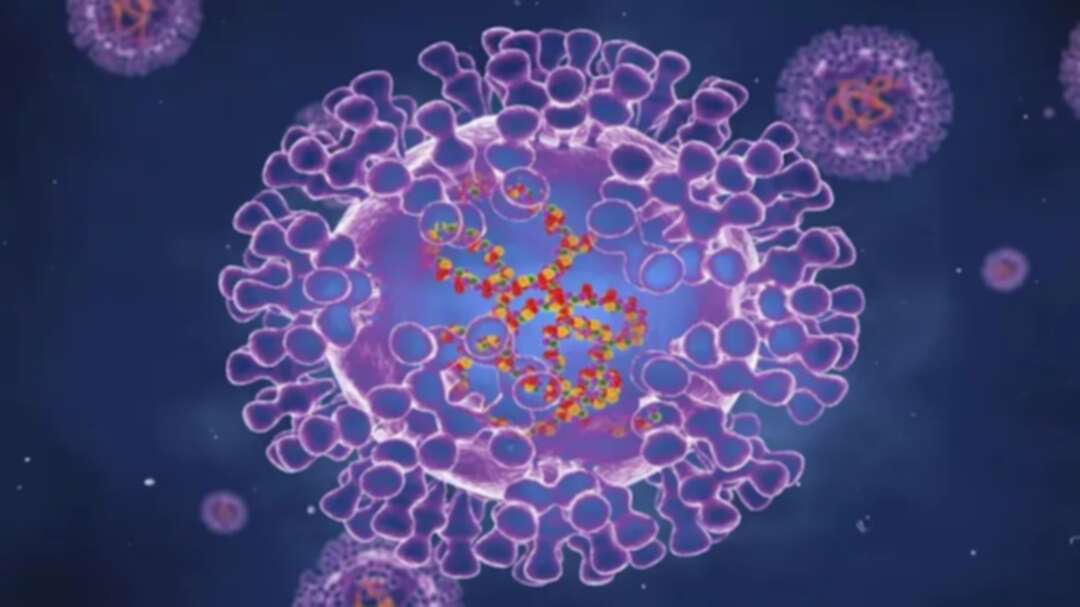-
First time in nearly two decades, US reports monkeypox case in Texas resident

The India Today reported that for the first time in nearly two decades, a rare case of human monkeypox was detected in Texas, US.
The patient is a US resident who had returned from Nigeria a couple of days ago.
He is currently hospitalized in isolation in Dallas.
According to the India Today, the Centers for Disease Control and Prevention (CDC) is working with the airline and state and local health agencies to contact airline passengers and others who may have been in contact with the patient during two flights: Lagos, Nigeria, to Atlanta on July 8, with arrival on July 9; and Atlanta to Dallas on July 9.
Government officials said the lone case of monkeypox is no cause for alarm and poses no threat to the general public.
The illness, caused by the monkeypox virus, has not been detected in the US since a 2003 outbreak, which involved 47 people. That outbreak was traced to pet prairie dogs in the Midwest that harboured the virus.
While monkeypox can also be transmitted from person to person through respiratory droplets, the CDC said the chances of that happening in this case are low, as wearing masks is mandatory on flights and at US airports due to Covid-19, thereby reducing the risk of the pathogen spreading to other passengers or travelers from respiratory fluids suspended in air.
Monkeypox is a rare but potentially serious viral illness that occurs mostly in remote parts of Central and West Africa, according to the World Health Organization (WHO). The virus lives in animals, including primates and rodents, but it can sometimes "jump" from animals to people.
It typically begins with flu-like illness and swelling of the lymph nodes and progresses to a widespread rash on the face and body. Most infections last two-four weeks.
Monkeypox is in the same family of viruses as smallpox but causes a milder infection.
The virus spreads from person to person mainly through exposure to respiratory droplets, which can enter the body through mucous membranes in the eyes, mouth and nose.
In addition, monkeypox can also be transmitted when a person has contact with infected lesions or body fluids; indirectly, a person can catch monkeypox from contact with contaminated clothing or linens.
Source: indiatoday
Image source: Getty Images-indiatoday
You May Also Like
Popular Posts
Caricature
BENEFIT Sponsors BuildHer...
- April 23, 2025
BENEFIT, the Kingdom’s innovator and leading company in Fintech and electronic financial transactions service, has sponsored the BuildHer CityHack 2025 Hackathon, a two-day event spearheaded by the College of Engineering and Technology at the Royal University for Women (RUW).
Aimed at secondary school students, the event brought together a distinguished group of academic professionals and technology experts to mentor and inspire young participants.
More than 100 high school students from across the Kingdom of Bahrain took part in the hackathon, which featured an intensive programme of training workshops and hands-on sessions. These activities were tailored to enhance participants’ critical thinking, collaborative problem-solving, and team-building capabilities, while also encouraging the development of practical and sustainable solutions to contemporary challenges using modern technological tools.
BENEFIT’s Chief Executive Mr. Abdulwahed AlJanahi, commented: “Our support for this educational hackathon reflects our long-term strategic vision to nurture the talents of emerging national youth and empower the next generation of accomplished female leaders in technology. By fostering creativity and innovation, we aim to contribute meaningfully to Bahrain’s comprehensive development goals and align with the aspirations outlined in the Kingdom’s Vision 2030—an ambition in which BENEFIT plays a central role.”
Professor Riyadh Yousif Hamzah, President of the Royal University for Women, commented: “This initiative reflects our commitment to advancing women in STEM fields. We're cultivating a generation of creative, solution-driven female leaders who will drive national development. Our partnership with BENEFIT exemplifies the powerful synergy between academia and private sector in supporting educational innovation.”
Hanan Abdulla Hasan, Senior Manager, PR & Communication at BENEFIT, said: “We are honoured to collaborate with RUW in supporting this remarkable technology-focused event. It highlights our commitment to social responsibility, and our ongoing efforts to enhance the digital and innovation capabilities of young Bahraini women and foster their ability to harness technological tools in the service of a smarter, more sustainable future.”
For his part, Dr. Humam ElAgha, Acting Dean of the College of Engineering and Technology at the University, said: “BuildHer CityHack 2025 embodies our hands-on approach to education. By tackling real-world problems through creative thinking and sustainable solutions, we're preparing women to thrive in the knowledge economy – a cornerstone of the University's vision.”
opinion
Report
ads
Newsletter
Subscribe to our mailing list to get the new updates!






















